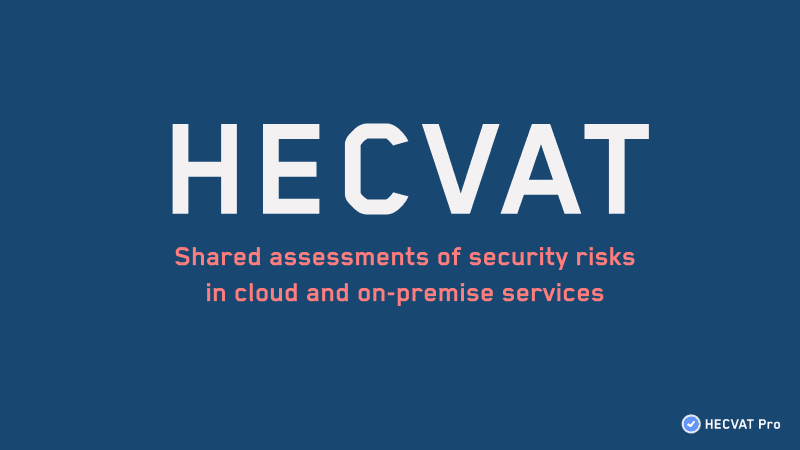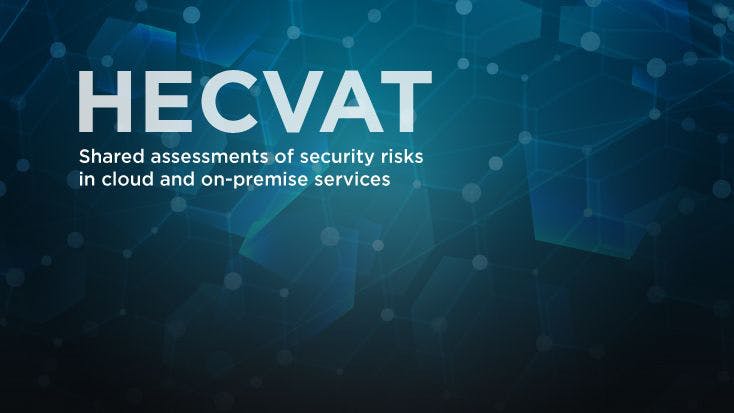Ensuring the security of student data and institutional information is paramount. As educational institutions increasingly rely on third-party vendors to provide essential services and software solutions, it becomes crucial to assess and manage the potential risks associated with these partnerships. This comprehensive guide aims to provide educators, administrators, and decision-makers with the tools and knowledge necessary to effectively evaluate the security posture of third-party vendors in the EdTech industry.
Table of Contents
ToggleUnderstanding the Importance of Vendor Security Assessment
In today’s digital age, educational institutions handle vast amounts of sensitive data, including student records, financial information, and intellectual property. When partnering with third-party vendors, it is essential to ensure that these vendors adhere to robust security standards and practices to protect this data from unauthorized access, breaches, or misuse.
Conducting thorough vendor security assessments helps educational institutions:
- Mitigate risks associated with data breaches and cyber threats
- Comply with regulatory requirements and industry standards
- Maintain trust and confidence among students, parents, and stakeholders
- Protect the institution’s reputation and financial well-being
The Role of HECVAT in Vendor Security Assessment
The Higher Education Community Vendor Assessment Toolkit (HECVAT) has emerged as a standardized framework for assessing the security posture of third-party vendors in the education sector. Developed by a consortium of higher education institutions, HECVAT provides a comprehensive set of questions and criteria to evaluate a vendor’s security controls, policies, and practices.
By leveraging the HECVAT framework, educational institutions can:
- Streamline the vendor assessment process
- Ensure a consistent and thorough evaluation of vendor security
- Compare and benchmark vendor security performance
- Make informed decisions when selecting and managing third-party vendors
To learn more about HECVAT and its benefits, explore our HECVAT Guides collection.
Key Areas of Focus in Vendor Security Assessment
When assessing the security posture of third-party vendors, educational institutions should focus on several key areas:
- Data Protection: Evaluate the vendor’s data protection measures, including encryption, access controls, and data retention policies.
- Incident Response: Assess the vendor’s incident response plan and their ability to detect, respond to, and recover from security incidents.
- Compliance: Ensure that the vendor complies with relevant industry standards and regulations, such as FERPA, COPPA, and GDPR.
- Third-Party Risk Management: Examine the vendor’s own third-party risk management practices and their ability to assess and monitor their subcontractors and service providers.
- Business Continuity: Evaluate the vendor’s business continuity and disaster recovery plans to ensure the availability and resilience of their services.
For a deeper dive into the HECVAT questionnaire and its key areas of focus, visit our HECVAT collection.
Benefits of Working with a HECVAT Consultant
Navigating the complexities of vendor security assessment can be challenging, especially for small and medium-sized educational institutions with limited resources and expertise. This is where working with a HECVAT consultant can provide significant benefits.
A HECVAT consultant can:
- Provide expert guidance and support throughout the assessment process
- Help interpret and analyze vendor responses to the HECVAT questionnaire
- Identify potential risks and recommend mitigation strategies
- Assist in developing and implementing vendor management policies and procedures
To explore the benefits of working with a HECVAT consultant, read our blog post: Unlock the Benefits of Working with a HECVAT Consultant: A Guide for SME Vendors.
Overcoming Challenges in Completing the HECVAT
Completing the HECVAT questionnaire can be a daunting task for vendors, especially those new to the process or with limited resources. Common challenges include:
- Understanding the technical terminology and requirements
- Gathering the necessary documentation and evidence
- Allocating sufficient time and resources to complete the questionnaire
- Addressing potential gaps or weaknesses in security controls
To help vendors overcome these challenges, we offer a range of HECVATPro services, including:
- HECVAT questionnaire completion assistance
- Gap analysis and remediation guidance
- Policy and procedure development
- Training and education on HECVAT best practices
Best Practices for Ongoing Vendor Management
Assessing vendor security is not a one-time event but an ongoing process. Educational institutions should establish a robust vendor management program that includes:
- Regular monitoring and review of vendor security performance
- Contractual provisions for security requirements and audit rights
- Incident notification and response procedures
- Termination and transition plans
By implementing these best practices, educational institutions can ensure the continued security and compliance of their third-party vendor relationships.
Conclusion
In the rapidly evolving EdTech landscape, assessing and managing third-party vendor security is a critical responsibility for educational institutions. By leveraging the HECVAT framework, working with experienced consultants, and implementing best practices for ongoing vendor management, institutions can effectively mitigate risks, protect sensitive data, and maintain the trust of their stakeholders.
To stay informed about the latest developments in HECVAT and vendor security assessment, visit our blog and explore our range of resources and services.
By prioritizing vendor security assessment and taking a proactive approach to managing third-party risks, educational institutions can confidently navigate the challenges of the digital age and provide a secure and reliable learning environment for their students.



